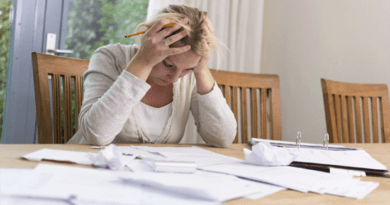How does Loneliness Affect Mental Health?
Loneliness is a universal common emotion that everyone experiences. The month of February can be a challenging time for some, as it is known for the month of love and connection. However, with Valentine’s Day approaching, many people can have increased feelings of loneliness. Even those in a relationship may feel lonely. It is complex and unique to everyone how it is felt. Loneliness can make people feel unwanted, alone, and empty. It is not always about being alone, it can be felt by those who are surrounded by others constantly and are still experiencing isolation and emptiness. Research suggests that loneliness can impact our physical and mental well-being.
Loneliness is a natural feeling that can be triggered during certain life changes. This is a period when there is a decrease in contact with familiar people or no contact all together. A life change that impacted everyone was the Covid-19 pandemic. According to the American Psychological Association, the pandemic increased loneliness by 5%. The impact of quarantining, physical distancing, and loss of loved ones still plays a major factor on loneliness in our community today. Some other events that might make you feel lonely are:
- Ending a relationship or friendship
- Moving away or further from your support system
- Losing a loved one
- Changing jobs, schools, or living situation
- Being diagnosed with a chronic or terminal illness
- Working remote
- Social media
The situations vary as well as the adjustment period to them. It is understandable that loneliness feelings persist among major life changes. However, problems can arise when loneliness is persistent and becomes chronic. It will start to impact an individual’s overall health. The negative feelings in the mind can lead to chronic loneliness.
Chronic loneliness with a lack of support and no stable community can contribute to several mental health conditions. It may be a response to a mental health condition or a trigger that initiates a mental health condition.
- Depression: Loneliness and depression have a strong relationship within one another. If you have been feeling lonely or socially isolated, there are negative self-beliefs that arise, and life satisfaction can decrease.
- Substance Misuse: It is common to numb painful feelings with alcohol or other drugs that people feel when dealing with chronic loneliness. A lack of social support can be a major obstacle when dealing with recovery of substance misuse.
- Anxiety: Chronic loneliness can exacerbate already existing social anxiety. Having a support system may help these feelings and without it, it can be challenging to navigate the negative feelings along with loneliness.
- Poor quality of sleep: Feelings of loneliness can contribute to fatigue and low energy that can impact daytime function. This can contribute to quality of sleep and lead to worsening mental health conditions.
Studies show a relationship between social engagement and mental health. There is a cycle in which symptoms of a mental illness can limit connections and support, which can lead to the loss of that support. The loss of support can lead to increased symptoms, and so forth. It is important to understand this cycle and start to take the steps needed for social support to better overall health.
Maintain and strengthen your relationships
Stay in touch with your loved ones. If you have had to move, try to talk to your friends and family weekly. This can be a phone call or a video call that can remind you of the important relationships you have. This may not feel the same as in-person but focusing on quality relationships that make you feel connected is important.
Volunteer or consider community service
Find areas that interest you and try to get involved. If you are feeling isolated or socially excluded, it may lead to feelings of having no purpose of value. Giving back to the community can help add meaning to your life and can lead to connecting with others with the same interests as you.
Try a new hobby
If you are feeling lonely, you may feel like time is moving slowly. Try filling that time with something new you have always wanted to do. Starting an art project, gardening, dancing, walking in nature, or even something in your community. This can increase your happiness and may lead to new connections.
Ask for help
Don’t be afraid to ask for help. If you are feeling lonely, tell someone. Understand that everyone feels lonely from time to time, and it is okay to reach out. If the feelings of loneliness linger, reach out and seek professional help.
– By Anabel Feauto, Health Promotion Specialist
READ: Understanding Seasonal Affective Disorder
Valeo’s Crisis Center is located at 400 SW Oakley Avenue. Valeo’s Crisis Center never closes, it is a walk-in emergency clinic with no appointment necessary. Valeo’s 24-Hour Crisis Line is 785-234-3300
Valeo Behavioral Health Care
785-233-1730
Crisis Services
400 SW Oakley, Topeka, KS 66606
24 Hour Crisis Line: 785-234-3300
National Suicide Prevention Life Line
1-800-273-8255
Shawnee County Suicide Prevention Coalition
SCSPC.org
Family Service and Guidance Center (18 and under)
325 SW Frazier, Topeka, KS 66606
24 Hour Crisis Number: 785-232-5005
Healing after Loss to Suicide Group (HeALS)
Sandy Reams – Group Facilitator
Topeka.Heals@gmail.com
785-249-3792





